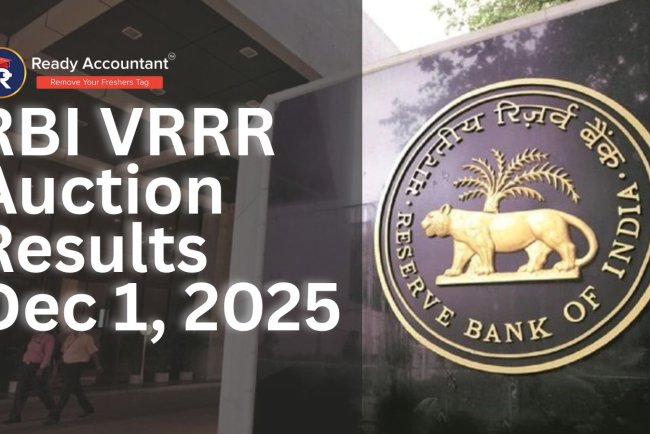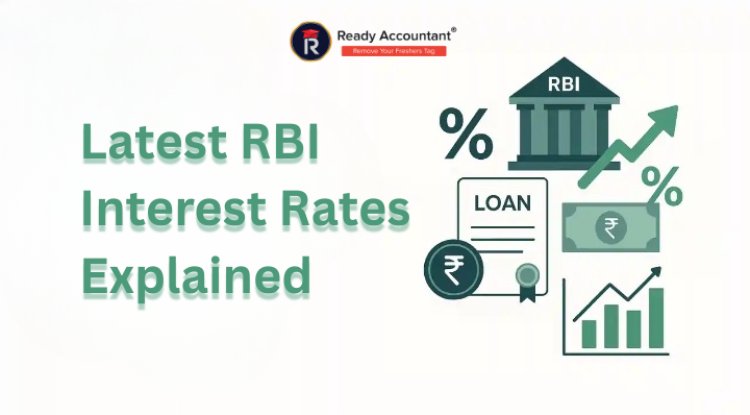Why Bank Nifty is the Most Volatile Index in India
Bank Nifty, which represents India’s top 12 banking stocks, is considered the most volatile index in India. Its sharp movements are driven by factors like interest rate changes, economic growth, institutional trading, and heavy derivatives activity. Unlike other indices, Bank Nifty directly reflects the country’s economic health, making it both risky and rewarding for traders. While its volatility provides excellent opportunities in intraday and options trading, it also requires strict risk management. For students and professionals, learning through Certified Corporate Accounting, SAP FICO (Finance & Controlling), and Taxation (Income Tax & GST) courses can build a strong foundation to understand financial markets and banking trends.
In the Indian stock market, Bank Nifty is one of the most popular indices. It represents the performance of the top 12 banking stocks listed on the National Stock Exchange (NSE). Traders love it because of its sharp price movements, but at the same time, it is also the most volatile index in India.
In this article, we will explain why Bank Nifty is so volatile, what factors drive its movements, and how students and professionals can learn to analyze it better with career-focused finance courses.
What is Bank Nifty?
The Bank Nifty Index includes leading banks such as:
-
HDFC Bank
-
ICICI Bank
-
State Bank of India (SBI)
-
Axis Bank
-
Kotak Mahindra Bank
These banks are directly linked to credit, loans, interest rates, and the economy. That’s why Bank Nifty reacts strongly to economic news and policy changes.
Why Bank Nifty is the Most Volatile Index in India
Here are the main reasons:
1. Sensitive to Interest Rates
-
Any change in the Reserve Bank of India’s (RBI) repo rate affects banking profits.
-
A small hike or cut can cause instant movements in banking stocks.
2. Tied to Economic Growth
-
When the economy grows, loan demand increases, boosting bank profits.
-
When growth slows, defaults rise, pulling banking stocks down.
-
This makes Bank Nifty move in cycles with the economy.
3. Heavy Institutional Trading
-
Foreign Institutional Investors (FIIs) and Domestic Institutional Investors (DIIs) actively buy and sell banking stocks.
-
Their large trades create sudden spikes or drops in Bank Nifty.
4. Active in Derivatives Market
-
Bank Nifty is the most traded index in options and futures.
-
Weekly expiry (Thursday) often sees wild swings because of options trading.
5. Sector-Specific Risks
-
Issues like non-performing assets (NPAs), loan defaults, or new government regulations can quickly impact banks.
-
Negative news spreads fast and increases volatility.
Bank Nifty vs Other Indices
-
Nifty 50: More stable because it covers many sectors like IT, Pharma, FMCG.
-
IT Index: Moves mainly on global IT demand and US markets.
-
Pharma Index: Slower moves, mostly based on USFDA approvals.
-
Bank Nifty: Directly linked to the economy, interest rates, and credit. This makes it the most volatile index.
Why Traders Prefer Bank Nifty
Even though it is risky, Bank Nifty gives traders great opportunities:
-
Day Trading: Sharp intraday moves for quick profits.
-
Options Trading: High liquidity makes it perfect for straddles, strangles, and spreads.
-
Swing Trading: Banking trends last for weeks, offering positional opportunities.
???? But remember, the same volatility can also cause heavy losses if risk is not managed.
Risk Management in Bank Nifty
If you are trading Bank Nifty, follow these tips:
-
Always use a stop-loss to protect your capital.
-
Trade with small position sizes instead of big bets.
-
Use technical analysis to track support and resistance.
-
Don’t trade only Bank Nifty—diversify with other indices or stocks.
Learning About Bank Nifty and Finance
To understand indices like Bank Nifty better, you need financial knowledge. Many students and professionals today enroll in Popular Courses to build careers in accounting and finance.
Some useful career-focused programs are:
-
Certified Corporate Accounting: Teaches financial reporting, auditing, and accounting skills.
-
SAP FICO (Finance & Controlling): A globally recognized course that helps you manage corporate financial systems.
-
Taxation (Income Tax & GST): Essential for understanding how tax policies impact the economy and banking sector.
With these courses, you can build strong knowledge of markets, finance, and taxation—skills that are in high demand for jobs in corporate accounting, investment banking, and stock market analysis.
Final Thoughts
So, why is Bank Nifty the most volatile index in India?
Because it is:
-
Highly sensitive to interest rate changes
-
Closely linked with India’s economy
-
Driven by heavy institutional activity
-
The most active index in the derivatives market
For traders, this volatility brings both profit opportunities and risks. For students and professionals, learning about finance through Certified Corporate Accounting, SAP FICO (Finance & Controlling), and Taxation (Income Tax & GST) can open the doors to careers in banking, accounting, and investment.
In short, Bank Nifty is the heartbeat of India’s economy—fast, unpredictable, but full of opportunities for those who are prepared.
What's Your Reaction?



















